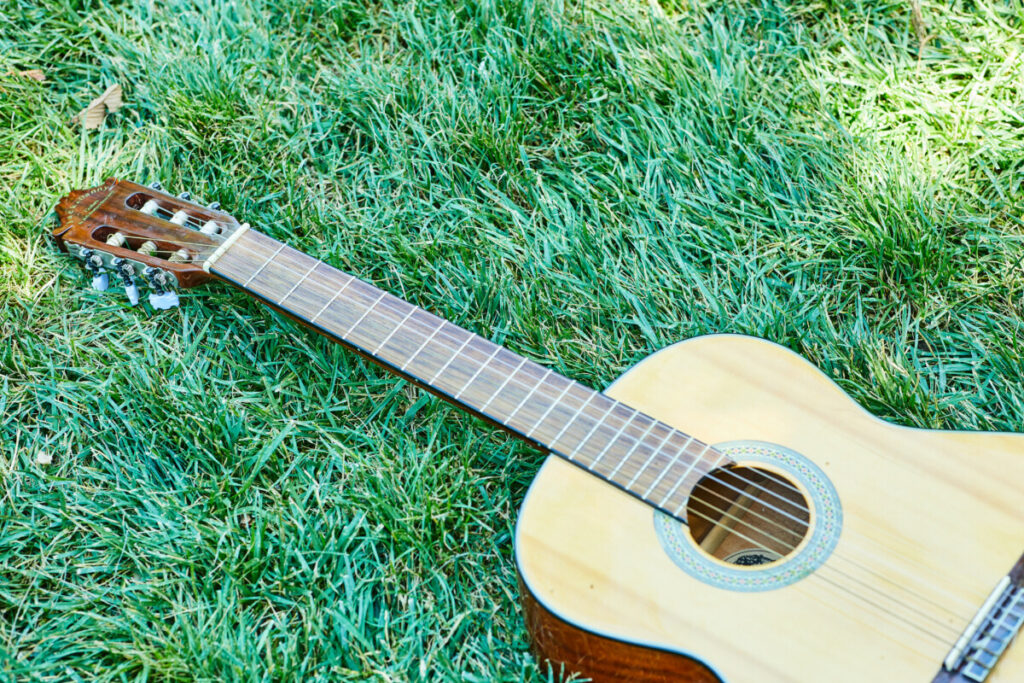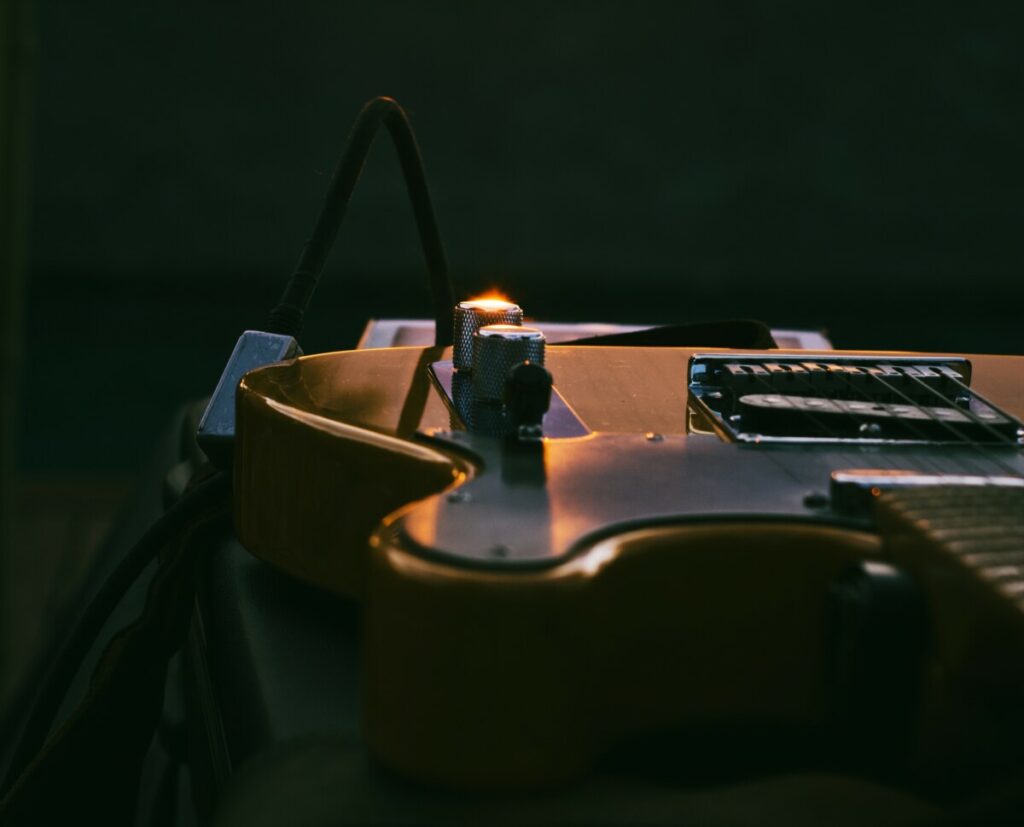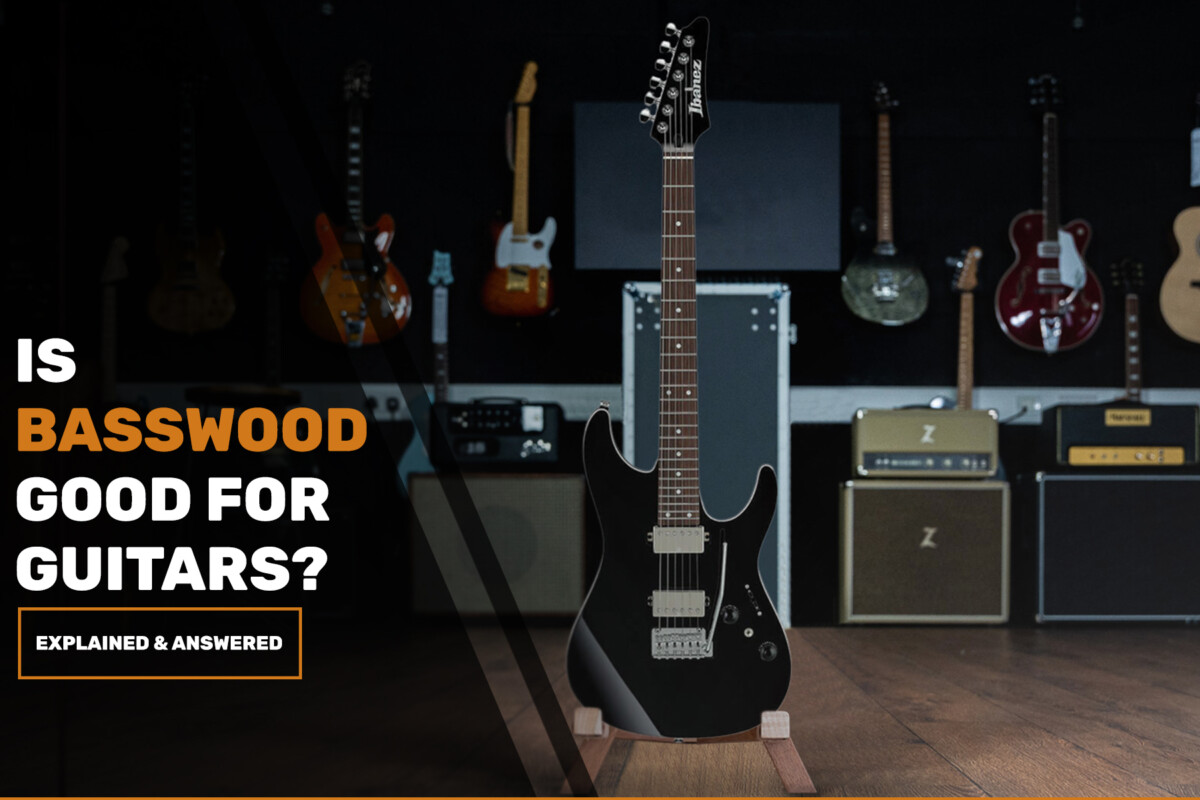The basswood tree is a popular choice of wood for many musical instruments, particularly guitars. Some features make it an attractive option for guitar-makers looking to craft beautifulsounding instruments.
Still, is it really that good? What are the benefits of basswood in guitars?
In this article, we’ll explore the advantages and disadvantages that baswood provides when used in guitars and help you decide if basswood is right for your instrument.
In Short: Is Basswood Good For Guitars?
Yes, basswood is a good choice for guitars. This lightweight and relatively soft wood offers several benefits when used in guitar-making, including increased resoance, improved sustain, and a warm tone.
However, basswood may not be the best option for some players depending on their playing style or desired sound. One of my favorite basswood tonewood guitars is the Jackson JS32T King V, it has a killer design with exceptional quality and tone.
Benefits Of Using Basswood

Basswood is a popular wood material used in the construction of acoustic guitars, and for good reason. This wood has a number of beneficial characteristics that make it a favored choice among musicians and guitar makers.
Tonal Quality: One of the main reasons why Basswood is favored is its warm and balanced tonal quality as this wood ofers a rich and full sound, making it ideal for use in acoustic guitars.
Durability: Basswood is a strong and durable wood that can withstand the rigors of regular use, making it a great choice for guitar constuction. This means that guitars made from Basswood will be able to withstand the wear and tear of everyday use and perform well for many years.
Lightweight: Another advantage of Basswood is its relatively lightweight nature. This makes it easier for musicians to play their guitars for extended periods of time without experiancing any discomfort or fatigue. An example of this is the Fender FA-100 Acoustic Guitar, it has a basswood body which makes it lightweight and comfortable for players.
Affordable: When compared to other types of woods used for guitar making, Basswood is generally more affordable, making it a popular choice for beginer and budget-conscious musicians. This means that guitar makers can offer high-quality guitars to a wider range of customers
Aesthetic Appeal: Finaly, Basswood has a unique and atractive grain pattern that makes it a visually appealing material for guitar making. This wood’s attractive appearance can add a touch of elegance to any guitar, making it a popular choice among musicians and colectors alike, especially to those that love a good looking guitar.
Its important to note that wood is a natural material, and its properties can vary based on factors such as growth conditions, species, and harvesting techniques. As a result, it’s crucial to choose the right type of Basswood carefully, based on specific needs and preferences.
Drawbacks Of Using Basswood
While Basswood has several benefits as a material for guitar construction, it also has a few drawbacks that musicians and guitar makers should be aware of.
Tonal Quality: Once again, while Basswood is known for its warm, balanced tonal quality, it may not have the projection or clarity that some muscians prefer. Some musicians may find that Basswood does not provide the crisp, bright sound that they are looking for in an acoustic guitar.
Softness: Basswood is a relatively soft wood, which can make it more suseptible to dents and scratches. This softnes can also affect the guitar’s overall stability, leading to warping or bowing over time.
Limited Avaiability: Basswood is not as readily available as other types of woods used for guitar making, which can make it more difficult to source. This can lead to higher prices or longer wait times for guitar makers.
Sensitivity to Environment: Basswood is also more sensitive to changes in temperature and humdity than some other woods. This can lead to cracking or wraping if the guitar is not stored or played in a controlled environment.
In conclusion, while Basswood has several benefits, its important to consider its drawbacks and weigh the pros and cons when deciding on the right wood for a guitar.
As with any natural material, the characteristis of Basswood can vary, so it is important to carefuly choose the right type and source it from a reliable supplier.
Different Types of Basswood Used By Professionals

The basswood tree is a popular choice of wood for many musical instruments, particularly guitars. Popular basswoods used by luthiers include European basswood, Chinese basswood, swamp ash and Alder. Each basswood has its own unique set of characteristics that ofer different benefts to the instrument.
European basswood is considered one of the best basswoods available and is often found in high-end instruments. It’s pale yellow or white colouring and fine grain make it ideal for achieving a professional finish on the guitar’s body. It also offers excelent resonance and sustain with a full-bodied tone.
Chinese basswood is slightly harder than European basswood but still retains some of its lightweight properties making it suitable for guitars. It is usualy a darker color than other basswoods and has a more defined grain pattern which can be quite attractive. Chinese basswood offers great sustain, clarity and depth to the sound of the guitar. An example of such basswood quality is the Ibanez RG450DX.
Swamp ash is another popular basswood used in guitars due to its lightweight and relatively soft nature. Its light colouring and evengrain provides a smooth finish to the instruments body while still offering excellent resonance, tone and sustain when played.
Finaly, Alder basswood is known for its medium weight properties making it ideal for those looking for an instrument with good balance between weight, resonance and tone. It has some unique characteristics including providing strong lows, mids and highs as well as a bright atack when played.
Conclusion
After all, as you can notice, basswood can be easily used for guitars and it is not considered to be a bad thing plus it offers quite a long list of benefits.
Yet again, besides benefits, there are aways some slight disadvantages, and there is no doubt that you should check everything, in order to get the best out of basswood for your guitars.
Anyways, I really hope you liked what you read thus far, and I hope this article provided you with everything you needed to know! Good luck!

